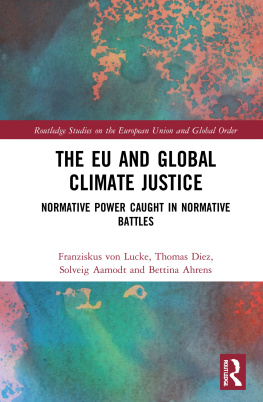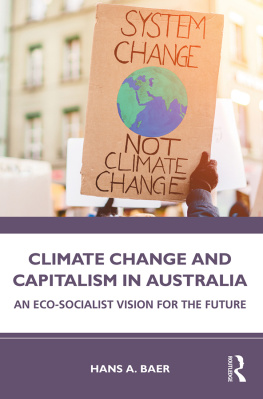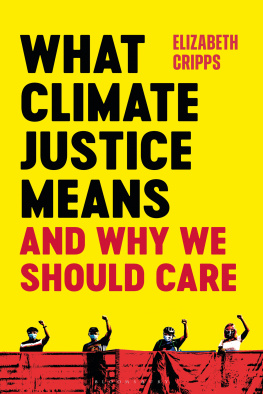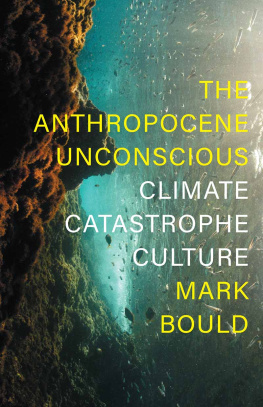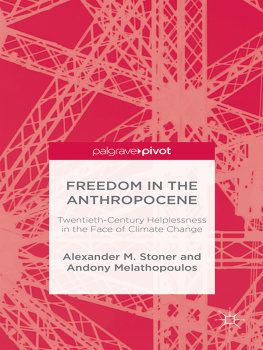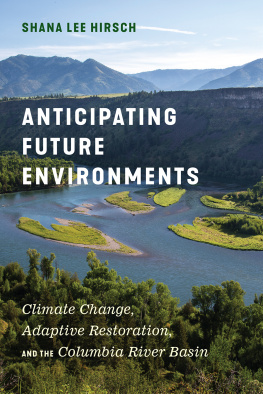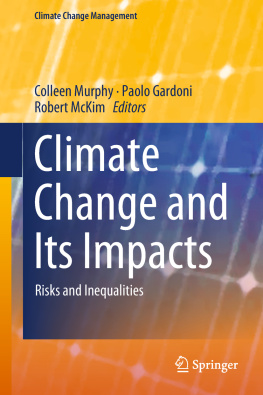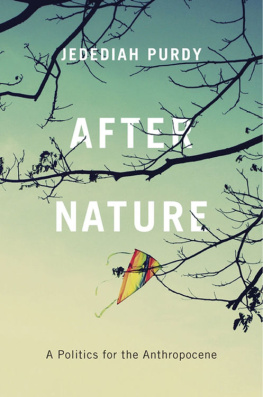
Climate Change and Intergenerational Justice
Synonymous with catastrophe and destructive tendencies, the Anthropocene provokes reflection on the limits of existing applications of ideas of responsibility, ecological agency and democratic justice. Youth campaigners, in particular, make emerging insights on the Anthropocene of central importance to an intersubjectively generated redefinition of the just society of the future. Given their span of affectedness, escalating rates of greenhouse gas emissions shape the ecological circumstances of generations to come and implicate them in harm relations they had no hand in creating. The realization is that human-inspired climate-destructive practices reverberate across plural time frames, thereby raising serious questions about the value of conventional interpretations of the copresence of sources of climate harm and their effects on the health and environmental living standards of all peoples. If injuries provoked by environmental degradation emerge across multiple time frames and affect generations differentially, where do we draw the boundaries of the just society, and how do we identify its most relevant subjects?
This book explores how such questions have ignited one of the most important debates on democratic justice in recent years that between generations. For mobilized youth and future justice coalitions campaigning internationally, expanding resource inequalities (regionally and intergenerationally) are fundamentally issues of unfair exclusions and asymmetries in relations of power between generations. The book offers a comprehensive overview of new insights being generated through such debate on the limitations of democratic presentism, as well as current institutional applications of civil and human rights norms. It assesses overall how the metapolitical relevance of modernitys democratic project is being creatively redefined in terms more relevant to Anthropocene futures.
Tracey Skillington is Lecturer in Sociology in the School of Sociology & Philosophy, University College Cork. She is the author of Climate Justice & Human Rights (2017) and Guest Editor of a special issue of the European Journal of Social Theory, titled Perspectives on Climate Change (8[3], 2015).
Sociological Futures
Series Editors:
Eileen Green, John Horne, Caroline Oliver, Louise Ryan
Sociological Futures aims to be a flagship series for new and innovative theories, methods and approaches to sociological issues and debates and the social in the 21st century. This series of monographs and edited collections was inspired by the vibrant wealth of British Sociological Association (BSA) symposia on a wide variety of sociological themes. Edited by a team of experienced sociological researchers, and supported by the BSA, it covers a wide range of topics related to sociology and sociological research and will feature contemporary work that is theoretically and methodologically innovative, has local or global reach, as well as work that engages or reengages with classic debates in sociology bringing new perspectives to important and relevant topics.
The BSA is the professional association for sociologists and sociological research in the United Kingdom, with an extensive network of members, study groups and forums, and a dynamic programme of events. The Association engages with topics ranging from auto/biography to youth, climate change to violence against women, alcohol to sport, and Bourdieu to Weber. This book series represents the finest fruits of sociological enquiry, for a global audience, and offers a publication outlet for sociologists at all career and publishing stages, from well-established to emerging sociologists, BSA or non-BSA members, from all parts of the world.
Social Mobility for the 21st Century
Everyone a Winner?
Edited by Steph Lawler and Geoff Payne
Feeding Children Inside and Outside the Home
Critical Perspectives
Edited by Vicki Harman, Benedetta Cappellini and Charlotte Faircloth
Climate Change and Intergenerational Justice
Tracey Skillington
For more information about this series, please visit: www.routledge.com/Sociological-Futures/book-series/SOCFUT
Climate Change and Intergenerational Justice
Tracey Skillington
First published 2019
by Routledge
2 Park Square, Milton Park, Abingdon, Oxon OX14 4RN
and by Routledge
52 Vanderbilt Avenue, New York, NY 10017
Routledge is an imprint of the Taylor & Francis Group, an informa business
2019 Tracey Skillington
The right of Tracey Skillington to be identified as author of this work has been asserted by her in accordance with sections 77 and 78 of the Copyright, Designs and Patents Act 1988.
All rights reserved. No part of this book may be reprinted or reproduced or utilised in any form or by any electronic, mechanical, or other means, now known or hereafter invented, including photocopying and recording, or in any information storage or retrieval system, without permission in writing from the publishers.
Trademark notice: Product or corporate names may be trademarks or registered trademarks, and are used only for identification and explanation without intent to infringe.
British Library Cataloguing-in-Publication Data
A catalogue record for this book is available from the British Library
Library of Congress Cataloging-in-Publication Data
A catalog record for this book has been requested
ISBN: 978-1-138-22297-7 (hbk)
ISBN: 978-1-315-40634-3 (ebk)
Typeset in Times New Roman
by Apex CoVantage, LLC
For my mother, Angela
Contents
A special thank you to friends and colleagues for the rich and rewarding discussions on various themes addressed in this book: in particular, Patrick OMahony, Gerard Delanty, Piet Strydom, Hauke Brunkhorst, Richard Milner, Roddy Condon, Andrew Buchwalter, Graham Smith, Catherine Pearce and Jakob von Uexkull, Susana Batel, Andreas Niederberger, Jan Gehrmann, Ruben Langer and participants in the Whats So Disturbing about Climate Change? workshop at the Universitat Duisburg-Essen, Institut fur Philosophie in June 2016 for their critical input on theoretical arguments. Kind thanks also to postgraduate students in my Rethinking Borders seminar for their insightful comments and many hours of lively debate on these issues. Sincere gratitude to the editors of the Sociological Futures series Eileen Green, John Horne, Caroline Oliver and Louise Ryan for their continuous support. Finally, thanks to the College of Arts, Celtic Studies & Social Sciences in University College Cork for its support throughout this book project.
Today, the life support systems of this planet are in serious decline. Both the stocks and flows of key elements, such as carbon, nitrogen, phosphorus and silicon, have been so badly affected by human-driven pollution activity that the Earth is no longer shaped by natural geological changes. Instead, scientists warn, the planet is moving rapidly into a biologically less diverse and climatically more dangerous state of existence (Steffen, Crutzen & McNeill, 2007). By far the most important factor contributing to these developments is the rise and ongoing expansion of the fossil fuel economy. Some 70 percent of global energy-related carbon dioxide emissions today are generated by fossil fuel production and consumption (IEA, 2018). This, however, is not a new phenomenon but, rather, one that has been emerging steadily for years. Neither is it a coincidence that the mass distribution of coal-burning technologies from the late eighteenth and early nineteenth centuries onward coemerged with a new geologic age known as the Anthropocene.1 The Anthropocene defines a period in the planets geological history when, for the first time, a peculiar breed of


